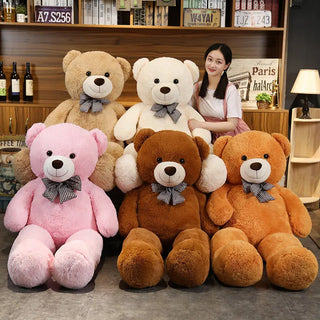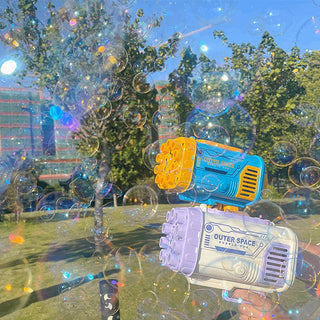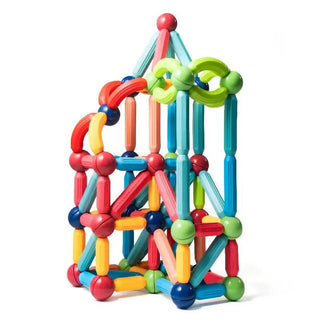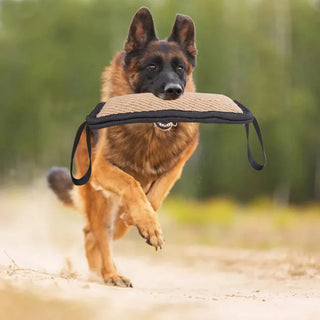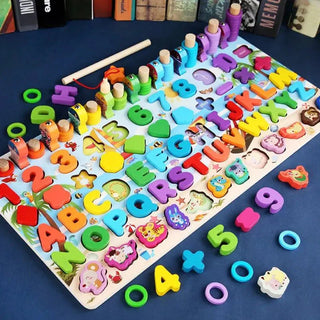Getting a new dog is exciting, but training can feel like a whole other ballgame, especially with an adult dog. Dallas has tons of options for adult dog training classes, and knowing where to start can be tough. Whether your dog needs to learn the basics or needs help with some tricky behaviors, the right class can make a huge difference. Let's look at what's out there to help your furry friend become the best companion they can be.
Key Takeaways
- Focus on basic obedience skills like sit, stay, and recall to build a strong foundation for good behavior.
- Advanced classes help dogs master off-leash control and respond to commands from a distance.
- Specialized programs address common issues such as anxiety, reactivity, and excessive barking.
- Group training offers a chance for dogs to practice skills and socialize in a controlled environment.
- Choosing the right class involves understanding different training methods and finding a program that fits your dog's personality and your goals.
Foundational Adult Dog Training Classes
Getting started with adult dog training in Dallas is all about building a solid base. These classes focus on the core skills that make living with your dog enjoyable and manageable. Think of it as learning the alphabet before you can write a novel – you need these basics down first.
Basic Obedience Essentials
This is where you and your dog learn the fundamental commands. We cover sit, stay, down, and come, making sure your dog responds reliably. It’s about clear communication and building a partnership. We also touch on polite greetings and how to manage your dog around common distractions. It’s not just about the dog listening, but also about you learning how to ask in a way they understand.
Loose Leash Walking Techniques
Nobody enjoys being dragged down the street by their dog, right? This section is dedicated to teaching your dog to walk nicely beside you without pulling. We use positive methods to encourage your dog to stay close and pay attention to you, making walks pleasant for everyone. It takes practice, but the results are so worth it for those daily strolls.
Reliable Recall Training
Getting your dog to come back when called is a lifesaver, literally. This is one of the most important skills you can teach. We work on making recall a positive experience so your dog wants to come back to you, no matter what’s going on around them. We start with short distances and gradually increase the challenge, building a dependable recall you can count on.
Advanced Obedience and Skill Building

Once your dog has a solid grasp of basic commands, it's time to really build on that foundation. Advanced obedience classes are all about refining those skills and teaching your dog to perform reliably, even with distractions. We're talking about taking your dog's responsiveness to the next level, making them a true pleasure to be around in any situation.
Off-Leash Control Mastery
This is where the real magic happens. Learning to trust your dog off-leash requires a strong bond and consistent training. We focus on building rock-solid recall, directional cues, and impulse control so your dog stays with you, even when there are squirrels, other dogs, or interesting smells around. It’s about giving your dog freedom while maintaining clear communication.
Distance Command Proficiency
Can your dog listen to you from across the park? This section of training works on ensuring your dog responds to commands even when you're not right beside them. We practice extending the distance for cues like 'sit,' 'stay,' and 'come,' gradually increasing the challenge to build reliability in various environments.
Complex Behavior Shaping
This involves breaking down more complicated behaviors into small, manageable steps. Think teaching your dog to fetch specific items, perform a series of tricks, or even engage in more intricate tasks. It’s a rewarding process that strengthens your partnership and provides great mental stimulation for your dog.
Building advanced skills takes patience and consistency. It's not just about the dog learning; it's about you learning to communicate effectively with your dog in more challenging scenarios. Celebrate the small wins along the way!
Addressing Specific Behavioral Challenges
Sometimes, even with the best intentions, our dogs develop habits or reactions that can be tough to handle. It's not about having a 'bad' dog, but about understanding why these behaviors happen and how to guide them toward better choices. Dallas has some great trainers who specialize in sorting out these trickier situations.
Managing Anxiety and Reactivity
Does your dog get overly stressed when you leave, or bark and lunge at other dogs on walks? These are common signs of anxiety or reactivity. Training focuses on building your dog's confidence and teaching them coping mechanisms. We work on creating positive associations with triggers, like other dogs or being alone, and teach them calmer ways to respond. It’s a process that requires patience, but seeing a dog relax and feel more secure is incredibly rewarding.
Countering Aggression Safely
Aggression in dogs can stem from various causes, including fear, resource guarding, or past negative experiences. Safely managing and modifying aggressive behavior is paramount. This type of training is highly specialized and requires a professional who understands canine body language and behavior modification techniques. The goal is to address the root cause of the aggression and teach the dog alternative, non-aggressive responses, always prioritizing the safety of the dog, owner, and public.
Reducing Excessive Barking
Constant barking can be disruptive for everyone. Whether it's boredom, attention-seeking, or territorial alerts, we can help. Training involves identifying the reason behind the barking and teaching your dog alternative behaviors. This might include rewarding quiet periods, teaching a 'quiet' command, or ensuring your dog has enough mental and physical stimulation to prevent boredom-related barking. It’s about teaching them when it’s appropriate to bark and when to settle down.
Socialization and Group Dynamics
Getting your dog comfortable around other dogs and people is a big part of having a well-behaved companion. It's not just about them being polite; it's about building their confidence so they don't get stressed out in busy places. Group classes are actually pretty great for this. You get to practice all those commands you've been working on, but with a bit more going on around you. Think of it as real-world training, but in a place where the trainer can help if things get a little hairy.
Group Class Etiquette
When you're in a group class, there are a few unspoken rules, you know? It helps everything run smoothly for everyone. First off, keep your dog on a leash unless the trainer says it's okay to let them off. And when you're walking, try to keep a little space between your dog and the next one. It's easy for dogs to get too excited and want to greet everyone, but sometimes that can lead to trouble. Also, pay attention to your dog's body language. If they're showing signs of stress, like lip licking or yawning a lot, it might be time to take a short break.
- Keep your dog on leash unless instructed otherwise.
- Maintain a comfortable distance from other dogs.
- Monitor your dog for signs of stress or over-excitement.
- Minimize distractions like excessive talking or loud noises.
Positive Interactions with Other Dogs
This is where the magic happens. You want your dog to learn how to be around other dogs in a good way. It's not about letting them run wild and play rough, especially at first. It's more about calm greetings and learning to share space. Trainers often use controlled setups, like having dogs walk past each other at a distance, and then gradually getting closer. This helps dogs learn that other dogs exist and it's okay, without them feeling like they have to go say hello right away or get defensive.
Learning to be around other dogs in a controlled setting is key. It helps prevent future issues like leash reactivity or fear-based aggression. It's all about building positive associations.
Building Confidence in Social Settings
Sometimes dogs can be a bit shy or unsure when there are lots of new sights and sounds. Group classes can help with that too. By practicing commands in a place with other dogs and people, your dog learns that these situations aren't scary. They start to realize they can still focus on you and follow your cues, even with distractions. It's like building up their resilience, so they're not so easily overwhelmed when you go to the park or a friend's house.
- Practice basic obedience in a busy environment.
- Introduce your dog to various sights, sounds, and smells.
- Reward calm behavior around other dogs and people.
- Gradually increase the level of distraction as your dog improves.
Specialized Adult Dog Training Programs
Dallas has some really neat options if you're looking to train your dog for something a bit more specific than just basic manners. These programs go beyond everyday obedience and can really shape your dog's future role or help them excel in unique ways. It's pretty cool what dogs can learn with the right guidance.
Therapy Dog Preparation
Getting your dog ready to be a therapy animal involves teaching them to be calm, gentle, and responsive in various settings, like hospitals or nursing homes. It's not just about being friendly; it's about understanding how to provide comfort and support without being overly excited or intrusive. Classes focus on building a dog's confidence around new people, strange equipment, and different environments. They learn to accept petting from strangers, remain calm when approached, and ignore distractions like dropped food or loud noises. The goal is to create a reliable, comforting presence.
Service Dog Task Training
Service dog training is a whole different ballgame. These dogs are trained to perform specific tasks to help individuals with disabilities. This could mean anything from alerting a deaf person to a sound, retrieving dropped items for someone with mobility issues, or providing deep pressure therapy for someone with anxiety. The training is highly individualized, focusing on the specific needs of the handler. It requires a high level of precision, reliability, and focus from the dog, often involving complex sequences of actions. It's a serious commitment, but the impact on a person's life can be immense.
Personal Protection Skills
For owners interested in personal protection, training focuses on teaching a dog to recognize and respond to potential threats in a controlled manner. This isn't about creating an aggressive dog; it's about developing a dog that understands boundaries and can act as a deterrent or alert its owner when necessary. The training emphasizes impulse control and clear communication between dog and handler. Dogs learn to distinguish between normal situations and actual threats, and their responses are carefully managed to ensure safety for everyone involved. It's about building a confident guardian, not a liability.
Choosing the Right Adult Dog Training Classes
So, you've decided it's time to get your dog into some proper training classes here in Dallas. That's a great step! But with so many options out there, how do you pick the right one? It can feel a bit overwhelming, honestly. You want to make sure you're choosing a program that fits your dog's personality and your goals, not just any old class. The key is to find a program that aligns with your training philosophy and your dog's specific needs.
Understanding Training Methodologies
Different trainers use different approaches, and it's good to know what you're getting into. Some trainers focus heavily on positive reinforcement, using rewards like treats and praise to encourage good behavior. Others might use a more balanced approach, which can include corrections for unwanted actions. Think about what feels right for you and your dog. Do you prefer a method that's all about rewards, or are you open to a mix? It's worth asking potential schools about their methods before you sign up. For instance, some places might use clickers, while others rely more on verbal cues and hand signals. Knowing this upfront can save you a lot of confusion later on.
Evaluating Trainer Experience
Experience matters, right? You want someone who has worked with dogs like yours before. Have they handled specific breeds or temperaments? What kind of success have they had? Don't be shy about asking about their background and certifications. A good trainer will be happy to share their qualifications and talk about their experience. It’s also helpful to see if they have testimonials or reviews from other dog owners in Dallas. A trainer who has been doing this for a while often has a knack for figuring out what makes a dog tick and how to communicate effectively with them.
Finding Classes for Your Dog's Needs
Every dog is an individual, and their training needs will vary. Is your dog a shy rescue who needs extra confidence-building? Or maybe they're a high-energy pup who needs an outlet for all that enthusiasm? Some classes are geared towards basic obedience, while others focus on specific issues like leash pulling or reactivity. Consider what you want to achieve. Are you aiming for a well-behaved companion for everyday life, or do you have a specific goal like therapy dog work? Look for classes that cater to your dog's age, breed, and any behavioral quirks they might have. Some schools even offer private sessions if group classes feel like too much for your dog to start with. It’s all about finding that perfect fit.
Picking the right training classes for your grown dog can make a big difference. It helps them learn good manners and build a stronger bond with you. We have lots of helpful tips on our website to guide you through the process. Visit us today to find the perfect class for your furry friend!
Putting Your Best Paw Forward
So, you've learned about the different ways Dallas offers to help your dog become a better companion. Whether it's basic manners, tackling specific issues, or even getting ready for specialized roles, there's a class out there. Remember, training is an ongoing thing, not just a quick fix. It's about building a connection with your dog and making life together more enjoyable for everyone. Taking that step to enroll in a class is a big deal, and it really shows how much you care about your furry friend. You're setting yourselves up for a happier, more harmonious life in Dallas.
Frequently Asked Questions
Can adult dogs really learn new things in training classes?
Absolutely! Adult dogs can definitely learn new tricks and good manners. Many adult dogs benefit greatly from training classes, especially if they haven't had much formal schooling or if their owners want to teach them new skills. It's never too late to start training.
What kind of things will my dog learn in a basic obedience class?
Most classes focus on teaching your dog basic commands like 'sit,' 'stay,' 'come,' and 'leave it.' They also cover important skills like walking nicely on a leash without pulling and responding to your voice even with distractions. Some classes might also touch on potty training or stopping unwanted behaviors like jumping.
What supplies do I need to bring to class?
It's best to check with the specific training facility, but generally, you'll need a comfortable collar, a leash (usually a 4-6 foot one), and tasty treats your dog loves. Some places might have specific rules about harnesses or other gear, so it's good to ask beforehand.
Are training classes good for socializing my dog?
Yes, socialization is super important, even for adult dogs! Classes provide a safe way for your dog to meet and interact with other dogs and people. This helps them become more comfortable and well-behaved around others, reducing fear or over-excitement.
How do I pick the right training class for my dog?
When choosing a class, think about what you want to achieve. Look for trainers who use positive methods, like rewarding good behavior. Consider your dog's personality and energy level, and whether you prefer one-on-one attention or group learning. Reading reviews or asking for recommendations can also help.
What's the best way to keep up the training after the class is over?
Consistency is key! Keep practicing the commands and techniques you learn in class at home. Keep training sessions short, fun, and rewarding for your dog. The more you practice, the stronger their understanding and response will become.






